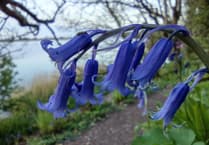With the approach of the shooting season, around 30 million pheasants and 10 million red-legged partridges are about to be released into the UK countryside for recreational shooting.
The birds will have been hatched and intensively reared in indoor units, mostly in France. Over the summer, the imported birds are housed in outdoor pens until their release. Yet despite clearly being farmed, animals reared for ‘sport’ are exempted from the laws designed to protect farmed animals and the environment.
Gamebirds are exempted from the regulations that require other livestock to be secured on the farmer’s land and protected from injury and ill health. Gamekeepers provide bins of grain to encourage the released birds to stay on their land throughout the shooting season, but many die on our roads, succumb to cold weather or are predated, with only a third of birds being killed by shooting.
Gamebirds are similarly not protected by animal welfare regulations that apply to the slaughter of other livestock. At commercial shoots, employees drive 200 to 500 birds over a line of 8 to 9 paying shooters, that is 25 to 60 birds per shooter. A high proportion of birds are not killed outright and may die slowly.
Every cartridge fired contains around 300 lead pellets making gamebird shooting the single major cause of environmental lead contamination in the UK with 5,000 tonnes fired into the environment each year, yet the Government does not legislate to stop this pollution.
Some pheasant shoots are not commercial but are run by a syndicate of shooters, maybe a group of neighbouring farmers or landowners. The birds that are shot have no commercial value. The high lead content means that they cannot be used in pet food. Yet a small number of birds are still sold in supermarkets and butchers for human consumption, clearly not meeting food safety standards.
The pro-shooting group, the Game and Wildlife Conservation Trust, calculates that over a quarter of woodland in England is managed for pheasant shooting. Despite laws to protect sensitive environments, released pheasants damage woodland vegetation, reduce insect populations and compete with wild birds for food.
Pheasants and red-legged partridge are not native to the UK, and the annual mass release of non-native species is unprecedented. Gamebirds have a total biomass greater than that of all our native birds combined, countering all efforts to protect our native wildlife.
The RSPB reports negative effects on wild bird populations including from disease transmission as intensively reared gamebirds suffer from infections and worm and tick infestations.
By any standards, the rearing, release and shooting of farmed pheasants and partridges by a small minority of people is excessive and harmful. It is also wholly at odds with farming, environmental and food safety legislation.
Ending the special treatment of a pastime that serves the interests of a small minority yet has such an outsized negative impact should be the job of the new parliament. Albeit many of the biggest landowners and shooters sit on its own benches.





Comments
This article has no comments yet. Be the first to leave a comment.